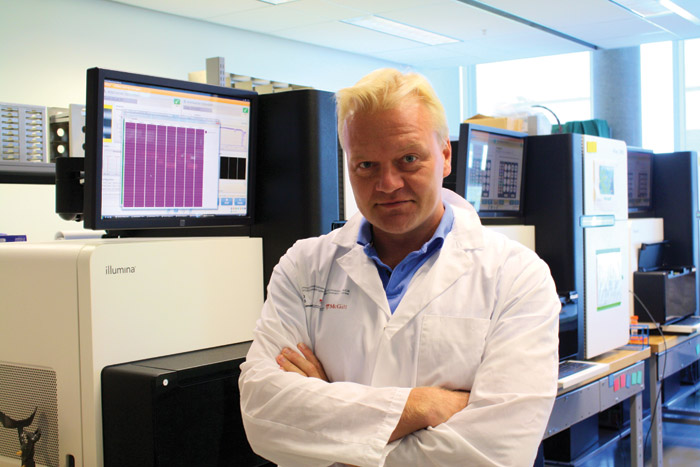Canada has one of the highest rates of inflammatory bowel disease (IBD) in the world.
According to the Crohn’s and Colitis Foundation of Canada (CCFC), approximately 233,000 Canadians suffer from IBD and an estimated $2.8 billion is spent annually on patient care.
Dr. Mark Lathrop, Ph.D., is a McGill researcher and pioneer in genetics and genomic sciences research. His most recent $370,000 grant for Crohn’s disease and ulcerative colitis research was awarded by the CCFC, an organization that promotes research geared towards fighting these diseases.
Lathrop found himself at McGill four years ago when he took up the position of scientific director at McGill and the Genome Quebec Innovation Centre.
Crohn’s disease and ulcerative colitis are IBDs that cause parts of the intestines to become inflamed. This causes abdominal pain, cramping, diarrhea, nausea, vomiting, weight loss, and a lack of energy.
Efforts to discover the etiology of the disease remain dubious, with over $164 million being poured into research without concrete results.
According to the Canadian Digestive Health Foundation, an estimated $141 million was spent on prescription drugs related to IBD in 2008 alone. Reported in the Canadian Journal of Gastroenterology, Crohn’s disease is diagnosed in every 13.4 per 100,000 person-years, while ulcerative colitis is diagnosed in 11.8 per 100,000 person-years. A person-year is defined as the product of the number of years times the number of members of a population affected by the condition.
While the disease is fundamentally genetic, patients may report symptoms due to environmental causes, such as intestinal fauna and smoking. A universal remedy has yet to be found, so for the time being, all treatments are purely symptomatic.
Dr. Tomi Pastinen, M.D. Ph.D., is a co-researcher on Lathrop’s team, and asserts that there is a need for experience and resources, in terms of collaborators and technologies, to apply these to understudied subjects. Presently, the team works with collaborators from Belgium and France.
The CCFC awards 30 grants every year on a variety of topics, from basic biomedical research and root causes of the disease, to clinical practices and how to treat patients with these symptoms.
The foundation selected Lathrop as the recipient of their annual grant after assessing his proposal for improving therapies for patients living with Crohn’s or colitis. According to Aida Fernandes, the chief science and education officer at the CCFC, Lathrop’s experience and innovation—along with the resources provided by the grant—will allow him to make considerable headway in this field.
“[Although Lathrop is] fairly new to the inflammatory bowel disease community, [the CCFC is] excited to have drawn in a new expert into Crohn’s and colitis research,” she said.
In recent years, due to advancements in technology, exciting new avenues of research have become worth investigating.
“[Genetics is] opening up a new area for investigation […] and Lathrop’s research grant is looking at a novel way of identifying new susceptibility genes for inflammatory bowel disease,” Fernandes said.
However, the hope for a universal panacea remains bleak.
“[The goal is to] move towards more personalized treatments for patients with Crohn’s and colitis,” Fernandes said.
Treatments and therapies using advanced genetic and genomic science will give doctors the ability to identify what does and does not work for different treatments. As evidenced through Lathrop’s research, the ability to manipulate genes through targeted therapy may be the future of medicine.









